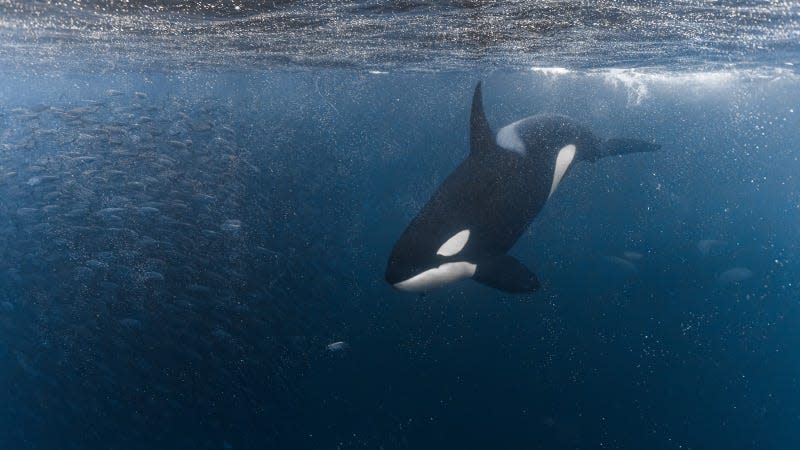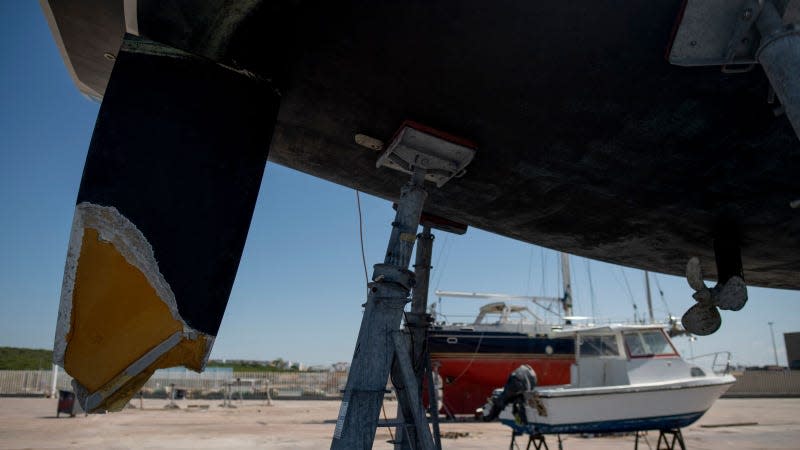Killer Whales Attacked Almost 700 Boats Because They’re Bored Teenagers

The biggest fear for sailors crossing the seven seas right now isn’t climate change, rising ocean levels or attacks from peg-legged pirates, it’s getting sunk by a pod of killer whales patrolling the waters around Portugal. Now, researchers have figured out why the group of 37 orca have been attacking everything from yachts to fishing boats, and it might just be because they’re bored.
The orca attacks in the Strait of Gibraltar began back in 2020, when the animals started ramming and biting at ships crossing the area. They have since been recorded pursuing fishermen back to port and even sunk a private yacht just last month. The behavior doesn’t appear to be as a means of getting food or even defending their territory, it sounds like it could be just because they’re angsty teenagers, according to a report from the Washington Post.
According to a group of multinational orca experts, the behavior isn’t a case of the orcas out to attack boats, and is instead a means of bored teenage orcas looking for a way to entertain themselves. As the site explains:
Since 2020, members of a small group of killer whales have rammed into at least 673 vessels off the coasts of Portugal, Spain and Morocco — causing some to sink. The Spanish and Portuguese governments responded by tasking a group of experts with determining what was causing the whales to strike rudders, which are used to steer ships, and how to stop it.
The group, which includes biologists, government officials and marine industry representatives, on Friday released a report outlining their hypothesis: The orcas just want to have fun, and in the vast — and rather empty — open waters, the boats’ rudders are a prime toy.
“This looks like play,” said Naomi Rose, a senior scientist at the Animal Welfare Institute who was part of the working group. “It’s a very dangerous game they’re playing, obviously. But it’s a game.”
Now, those same experts are proposing different ways seafarers can stay safe and out of the orcas’ attention when they’re crossing the Strait of Gibraltar. Unsurprisingly, the tips don’t include bodyslamming the animals when they get too close.

Instead, USA Today says sailors in Orca Alley are turning to novel additions to their rudders to make them less appealing to the animals, adapting their sailing schedules to the animals’ hunting patterns and being prepared to run away when the killer whales start swarming. As the site explains:
The workshop participants suggest mariners avoid areas where the Iberian killer whales are likely to be hunting their preferred prey – bluefin tuna – from May through August. They should also keep their boats closer to shore in shallow areas and move at least a mile away from any orcas who begin to interact with their boats. If possible, they should head toward shore to make rescue faster, should it be necessary.
Boaters are already following the experts’ suggestions in areas where the killer whales are interacting with their vessels and the results are encouraging.
While it’s great to hear that innocent fishermen aren’t at the mercy of the vicious killer whales as much anymore, it will be a shame if this brings an end to the stories about millionaires yachts being sunk by orca. Still, it was fun while it lasted.

 Yahoo Autos
Yahoo Autos 